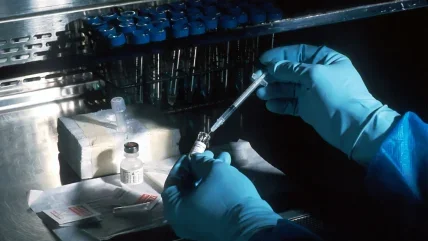
Celon Pharma said that its PDE10A inhibitor CPL’36 has shown robust and positive results in a Phase 2 clinical trial in patients with acute schizophrenia.
CPL’36 is a novel, oral, once-daily antipsychotic candidate.
The Phase 2 study of CPL’36 involved 189 hospitalised adult patients. It was conducted internationally across multiple centres in a randomised, placebo-controlled manner.
Patients received the antipsychotic for four weeks at daily doses of 20mg and 40mg in a 1:1:1 ratio against placebo.
Patient baseline severity was moderate-severe to severe, indicated by an average Positive and Negative Syndrome Scale for Schizophrenia (PANSS) total score of around 106.
After up to 10 days of screening, patients were randomly assigned and treated for four weeks, with primary endpoint assessment conducted at Day 28.
The candidate showed significant improvements on positive subscale of PANSS at Week four, thereby meeting the primary endpoint of the trial.
The results were seen in both tested doses of CPL’36, with a dose-response effect.
Additionally, the total PANSS score at week four of treatment, a key secondary endpoint, demonstrated reductions in all the dose.
Secondary endpoints included effects of the drug candidate on overall clinical improvement, cognitive performance, and incidence of treatment discontinuation due to adverse events.
The findings across these endpoints were consistently positive, said the Poland-based Celon Pharma.
Celon Pharma CEO Maciej Wieczorek said: “The results from this Phase 2 trial suggest a beneficial effect of CPL’36 across multiple aspects of schizophrenia pathophysiology. Clinical efficacy was deemed strong, and moreover, the drug tolerability was quite favourable.
“We believe that these results could herald a breakthrough in the treatment of this disease that impacts over 24 million patients world-wide, by identifying an innovative drug class with a new mechanism of action that may be used to replace or complement the current standard of care.”
Celon Pharma plans to discuss these findings with regulatory agencies to progress CPL’36 towards registrational trials and global marketing approvals.
Furthermore, the antipsychotic is under investigation as a treatment for levodopa-induced dyskinesia in Parkinson’s disease, with Phase 2 results anticipated in Q4 2024.






